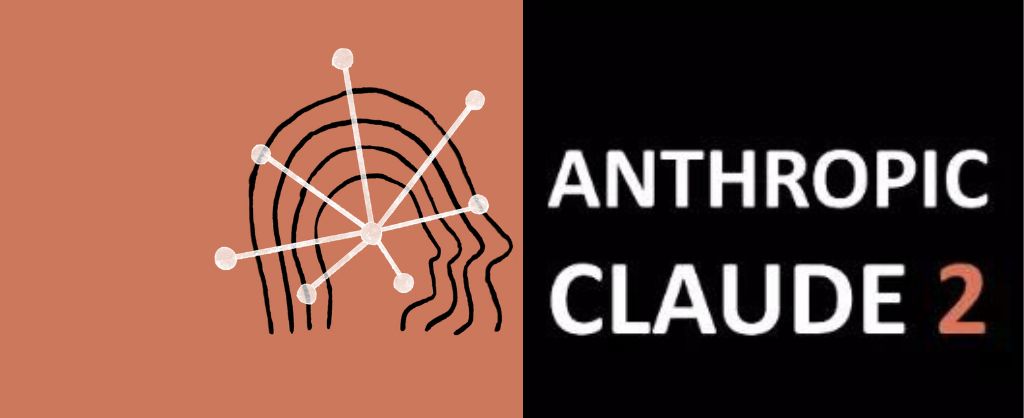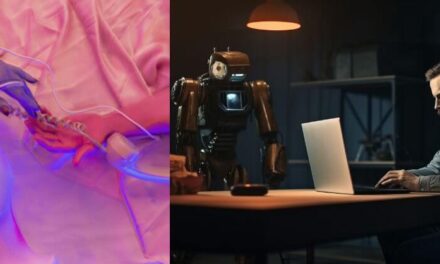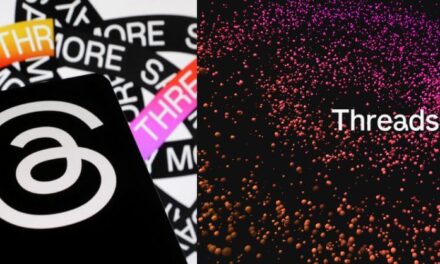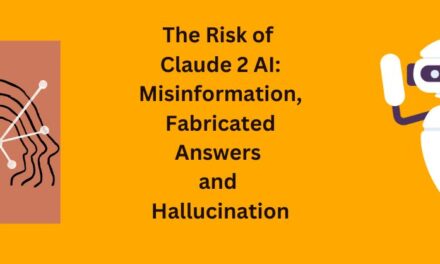In-Depth Review of Claude 2 – The Conversational AI Assistant

The field of artificial intelligence (AI) has seen remarkable advances in recent years, with systems like ChatGPT demonstrating human-like conversational abilities. However, as AI capabilities continue to rapidly evolve, concerns around safety, ethics, and societal impact have heightened.
Against this backdrop, San Francisco-based AI company Anthropic has taken a unique approach to navigating the AI landscape, drawing inspiration from influential historical documents to develop Constitutional AI that adheres to robust safety principles.
Recently, Anthropic announced launching Claude 2 in the US and UK, allowing anyone to sign up and try this AI assistant. According to Anthropic, Claude aims for more natural, conversational interactions versus the transactional feel of some competitors.
This comprehensive analysis will explore Claude 2’s standout features, including advanced summarization capabilities, integration of ethical principles, industry recognition and thought leadership, creative applications, and technical strengths.
The Risk of Claude 2 AI: Fabricated Answers and Hallucination
We’ll compare Claude 2 to other prominent chatbots like ChatGPT and Bing AI across key criteria. We’ll also examine ongoing challenges around accuracy, regulation, and intellectual property.
Here are top 5 features of Claude 2
- Advanced Summarization Capabilities
- Integration of Safety Principles and Ethical Guidelines
- Industry Recognition and Thought Leadership in AI Safety
- Creative Applications: Claude 2’s Artistic Abilities
- Technical Capabilities: Coding, Language Support, and Document Analysis
1. Advanced Summarization Capabilities of Claude 2
One of the most impressive capabilities showcased by Claude 2 is advanced long-form text summarization. The system can condense lengthy documents spanning thousands of words into concise summaries with remarkable speed and accuracy.
During a demonstration, Claude 2 summarized a 15,000 word report from the Tony Blair Institute for Global Change down to just 10 bullet points in under 60 seconds. This showcases Claude 2’s ability to rapidly distill key insights and information from extensive documents.
According to Anthropic, Claude 2 can process up to 75,000 words, summarizing complex information like scientific papers, legal contracts, research reports, and even novels. This positions Claude 2 as an invaluable productivity tool for processing and gaining insights from long-form content across diverse fields and applications.
The summarization occurs in real-time using Claude 2’s advanced natural language processing capabilities, significantly reducing reading time while preserving key facts, relationships, conclusions, and other crucial information.
For professionals like lawyers, researchers, and analysts who regularly handle lengthy, complex documents, Claude 2’s summarization could provide immense time savings and efficiency gains. Students and academics may also benefit from quickly parsing dense papers and reports to extract core insights.
Overall, Claude 2’s long-form summarization abilities represent a major leap forward in text analysis and information extraction, enabled by cutting-edge AI.
Top Movies About Technology, AI And The Digital World
2. Integration of Safety Principles and Ethical Guidelines
A defining aspect of Claude 2 is Anthropic’s focus on safety and ethics, setting it apart from many other conversational AI systems. Termed Constitutional AI, Anthropic’s approach involves training AI assistants like Claude 2 on a set of principled responses derived from historical documents like the Universal Declaration of Human Rights.
For example, one principle encourages Claude 2 to provide responses supporting freedom, equality, and brotherhood, inspired by values encapsulated in the UN Declaration. This instills Claude 2 with a sense of ethics and care when engaging with users.
Anthropic also aims to avoid potential harms, aligning with influential concepts like Isaac Asimov’s Three Laws of Robotics which place human well-being as the highest priority for AI.
By integrating ethical frameworks directly into its model architecture and training process, Anthropic aims to ensure responsible behavior from AI like Claude 2 that uplifts humanity. This principled approach has been praised by experts like Dr. Andrew Rogoyski from the Institute for People-Centred AI, likening it to Asimov’s influential laws for robotics.
As AI capabilities advance, Anthropic’s emphasis on constitutional AI represents an important step toward developing assistive systems that act with care, respect human rights and dignity, and avoid deception, harm, or unethical actions. Maintaining strong ethical standards will be critical as AI takes on increasingly prominent roles in society.
3. Industry Recognition and Thought Leadership in AI Safety
Anthropic and its CEO Dario Amodei have earned significant recognition for their leadership in AI safety, ethical practices, and beneficial impact on society.
Amodei has been extensively involved in high-profile discussions around responsible AI development, even participating in senior tech delegations with world leaders like UK Prime Minister Rishi Sunak and US Vice President Kamala Harris.
These discussions often focus on addressing risks related to advanced AI, with Amodei comparing the threat levels to other global catastrophic risks like climate change, pandemics, and nuclear war. This underscores Anthropic’s commitment to advancing AI safely in collaboration with policymakers and key stakeholders worldwide.
In 2022, Anthropic released a seminal paper titled ‘Constitutional AI‘ co-authored by Daniela Amodei which introduced their principled approach to AI ethics and safety. This research has been highly influential, providing a framework for imbuing AI systems with human rights, democratic principles, and care for human well-being.
The Constitutional AI approach has received praise from experts like Dr. Rogoyski and generated significant discussion around responsible development of AI technology, cementing Anthropic’s position as an industry leader in the field.
As AI assistants become more capable and ubiquitous in our lives, maintaining strong safety standards and ethical principles will be critical, and Anthropic’s thought leadership on Constitutional AI offers an important compass for the field.
4. Creative Applications: Claude 2’s Artistic Abilities
While Claude 2 excels at practical summarization and information retrieval, one of its most surprising strengths lies in creative applications like generating poetry, songs, speeches, and more.
In multiple reviews, Claude 2 has been praised for its artistic talents, able to craft short stories, poems, and other texts rivalling human creativity and emotional resonance. Its unique Constitutional AI architecture may contribute to its artistic flair, with principles encouraging imaginative yet thoughtful responses.
Claude 2 has shown particular talent in crafting highly convincing presidential speeches on complex topics like renewable energy and global cooperation. The system can capture nuances like rhetorical devices, emotion, and logical flow in an engaging, inspiring manner.
For creative professionals and hobbyists alike, Claude 2 represents a versatile idea generator and thought partner, able to brainstorm evocative metaphors, craft rhyming poems on demand, continue partially written stories in compelling directions, and more.
Its creative abilities also make Claude 2 an enjoyable conversationalist during leisure time, able to engage in witty banter, tell jokes, discuss art and literature, and generally hold forth as an entertaining companion.
As AI aims to not just assist but also delight humans, Claude 2 points to a future where machine learning unlocks new avenues for human creativity and artistic expression.
5. Technical Capabilities: Coding, Language Support, and Document Analysis
In addition to its prowess in summarization and creative applications, Claude 2 possesses robust technical capabilities underpinning its conversational skills and utility as an AI assistant.
For programmers, Claude 2 can analyze, explain, and even debug code in languages like Python, Javascript, SQL, CSS, and more. It can respond to questions about syntax, suggest fixes for errors, and discuss programming concepts and best practices.
According to reviews, Claude 2 rivals ChatGPT in coding assistance and surpasses alternatives like Bing AI in select programming tasks, highlighting its technical acumen. While not matching specialized code editors, Claude 2 provides an accessible coding assistant for common programming needs.
Linguistically, Claude 2 has multilingual capabilities. It can converse in more than 10 languages like Spanish, Portuguese, French, and German to broaden its global applicability. Support for additional languages is expected to expand over time as well.
Moreover, Claude 2 can parse and extract key information from various document file formats like PDFs and Word docs, enabling it to serve as a knowledgeable assistant across many text-based digital documents.
With its versatile technical skills and digital literacy, Claude 2 aims to be a productivity booster for common workplace tasks while also being approachable for everyday users. Ongoing improvements will further augment its capabilities and position it as an appealing all-purpose AI assistant.
How Does Claude 2 Stack Up Against ChatGPT and Bing?
Claude 2 enters a rapidly evolving landscape of conversational AI, competing against high-profile contenders like ChatGPT and Microsoft’s Bing AI.
How does Anthropic’s offering compare and stack up against these alternatives? A head-to-head analysis yields some key insights.
In terms of safety and ethics, Claude 2 stands apart with its Constitutional AI approach that deeply integrates principles like human rights into its training and outputs. ChatGPT and Bing lack this principled foundation, increasing risks of harmful, biased, or misleading content.
Regarding accuracy, ChatGPT currently sets the standard, with Claude 2 and Bing trailing slightly in factual correctness according to reviews. However, accuracy remains a challenge for all systems.
For creative writing and artistry, Claude 2 earns high marks, outperforming Bing AI and keeping pace with stellar examples from ChatGPT. Its Constitutional AI architecture may enable more imaginative yet grounded responses.
In coding assistance, Claude 2 shows promising capabilities rivaling ChatGPT. But dedicated code editors still maintain dominance for development tasks.
Overall, Claude 2 demonstrates competitive strengths in safety, creative applications, and technical competence, while aiming to improve accuracy over time. But no single system leads across all dimensions, underscoring the rapid evolution occurring in the AI space.
Ongoing Challenges: Accuracy, Regulation, and Intellectual Property
While showing impressive progress, Claude 2 and its competitors still face challenges around accuracy, regulation, and intellectual property protections.
A key limitation is occasional factual mistakes or textual inaccuracies, known as “hallucinations”, that persist across leading systems like ChatGPT and Claude 2. Safety mechanisms minimize blatant falsehoods but some errors still creep in, highlighting the need for ongoing training updates.
There are also calls to establish regulatory frameworks and independent auditing around AI systems to ensure accountability, transparency, and responsible practices as the technology matures. Guidelines to prevent copyright infringement and properly credit creators whose work helps train AI models have also been proposed.
The UK Writers’ Guild has specifically advocated for AI regulations to protect authors’ intellectual property and licensing rights. There are concerns AI could enable unauthorized reuse of written works or reduce creator compensation.
As AI capabilities grow more advanced and disseminated, addressing challenges around integrity, oversight, and fair compensation will be critical. Companies like Anthropic and policymakers worldwide still have much work ahead to develop prudent safeguards and standards for AI aimed at maximizing societal benefit.
The Future of AI: Immense Possibilities, Responsible Development
The launch of Claude 2 underscores how conversational AI continues advancing at a remarkable pace, unlocking novel capabilities for summarization, creativity, and assistance. However, just as important as raw technical prowess is developing AI thoughtfully and ethically to earn user trust and benefit society.
On this front, Anthropic has set an important precedent with Constitutional AI principles that align AI assistants with human values. Embedding ethics deeply into systems like Claude 2 represents tremendous progress.
But Claude 2 is just one step on a long road ahead for AI. Continued progress will require sustained investment, research, and vigilance from companies like Anthropic, regulators, policymakers, and civil society worldwide.
If developed responsibly, AI systems could profoundly improve human productivity, creativity, accessibility, and more. Realizing this immense potential while averting risks requires cooperation and principled guidance.
Claude 2 shows both the versatile promise and remaining challenges of advanced AI. As these systems continue evolving to transform how we work, create, and connect, maintaining ethical standards must remain an uncompromisable priority.
With thoughtful leadership and Constitutional AI paving the way, the future of AI looks bright. But there is still much work to be done.









